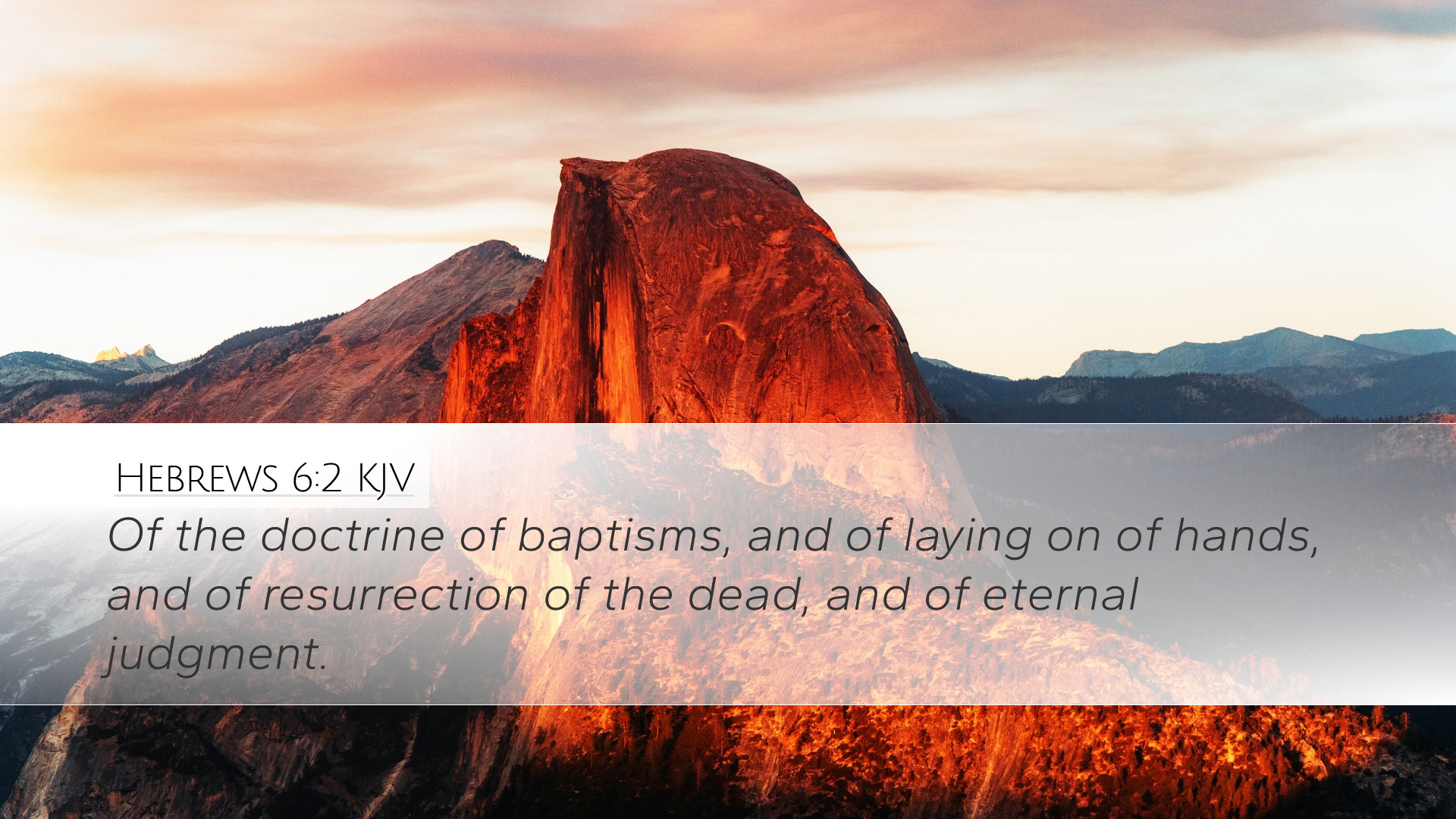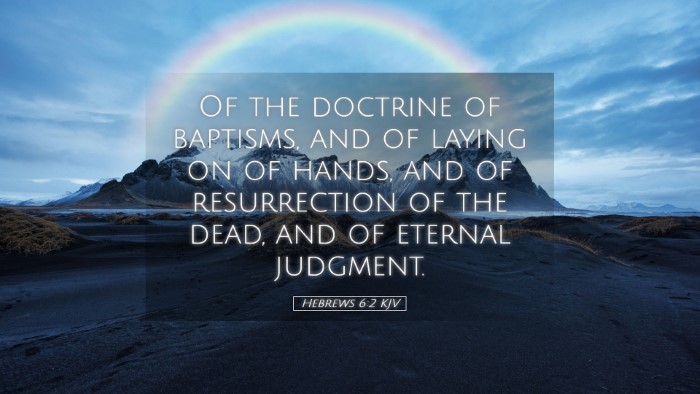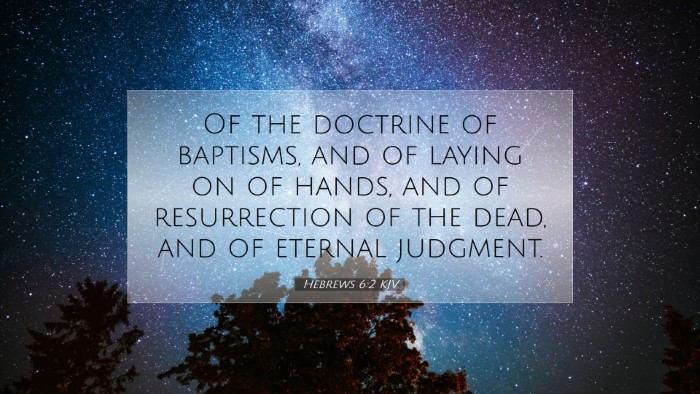Old Testament
Genesis Exodus Leviticus Numbers Deuteronomy Joshua Judges Ruth 1 Samuel 2 Samuel 1 Kings 2 Kings 1 Chronicles 2 Chronicles Ezra Nehemiah Esther Job Psalms Proverbs Ecclesiastes Song of Solomon Isaiah Jeremiah Lamentations Ezekiel Daniel Hosea Joel Amos Obadiah Jonah Micah Nahum Habakkuk Zephaniah Haggai Zechariah MalachiHebrews 6:2
Hebrews 6:2 KJV
Of the doctrine of baptisms, and of laying on of hands, and of resurrection of the dead, and of eternal judgment.
Hebrews 6:2 Bible Commentary
Hebrews 6:2 - Commentary Insights
Verse: “Of the doctrine of baptisms, and of laying on of hands, and of resurrection of the dead, and of eternal judgment.”
Introduction
The epistle to the Hebrews admonishes its readers, steering them toward maturity in their understanding of Christian doctrine. Hebrews 6:2 specifically highlights foundational teachings in the faith. This verse serves not only as an affirmation of essential doctrines but also as a call to deeper exploration of each topic discussed.
Baptisms
Albert Barnes' Insight: The term "baptisms" (or washings) suggests a plurality that may refer to various ceremonial washings present in Jewish traditions. It also embodies the Christian rite of baptism. The early church emphasized this as an initiation and identification with Christ’s death and resurrection.
Matthew Henry's Perspective: Henry sees baptism as significant for believers, symbolizing a spiritual cleansing and marking the beginning of a believer’s new life in Christ. However, the author of Hebrews urges the readers to transcend the initial steps of immersion and embrace the full implications of the sacrifice of Christ.
Laying on of Hands
Adam Clarke's Explanation: The laying on of hands is a practice that signifies the transmission of blessing, authority, or spiritual gifts. It is integral to community identity and function within the church. Clarke emphasizes its role in commissioning leaders and imparting spiritual gifts.
Matthew Henry's Contribution: Henry aligns this act with the impartation of the Holy Spirit and the acknowledgment of ministry roles in the early church. He cautions that while significant, the act itself is not sufficient without heartfelt commitment and faith.
Resurrection of the Dead
Albert Barnes' Commentary: In discussing the resurrection of the dead, Barnes touches on the assurance provided to believers about life beyond the grave. This assurance is foundational to Christian hope, centering on the truth of Christ's own resurrection as a precursor.
Matthew Henry's Reflection: Henry notes that understanding the resurrection is crucial for believers. It affirms the promise of eternal life and should motivate Christians to live with purpose, holding firm to the declaration that death is not the end.
Eternal Judgment
Albert Barnes' View: The concept of eternal judgment implies accountability and the ultimate reckoning for one's faith and actions. Barnes highlights it as an essential aspect of Christian doctrine, intending to guide believers to righteous living in light of future consequences.
Adam Clarke's Interpretation: Clarke underscores the importance of recognizing God’s righteous judgment as fundamental to the Christian life. Eternal judgment serves as a call to moral responsibility, urging believers to align their actions with the teachings of Christ.
Conclusion
The teachings encapsulated in Hebrews 6:2 encompass significant doctrinal matters essential for the spiritual growth of Christians. Pastors, students, theologians, and scholars are invited to delve deeper into these foundational tenets, ensuring they foster a mature faith that not only welcomes the elementary teachings but also seeks a richer understanding of the implications of such doctrines in daily life.
This verse serves as a pivotal reminder that while the fundamentals are vital, they are stepping stones that lead to a lifelong journey of faith, where believers are called to explore the depths of God's truth and grace.


